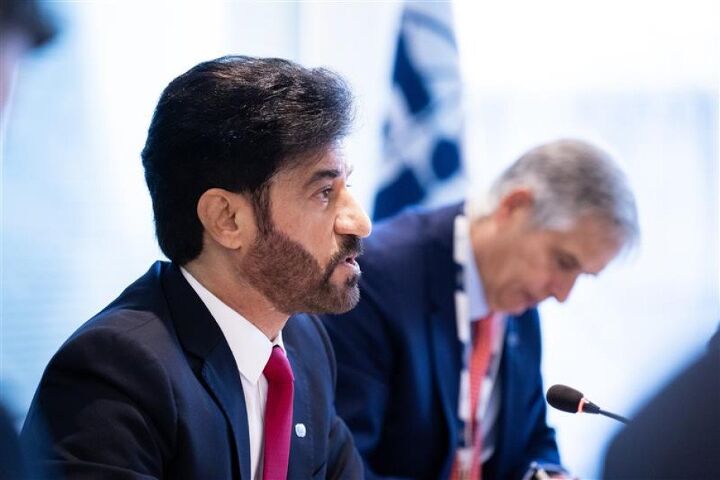
FIA President Mohammed Ben Sulayem has suggested that he might need to revisit the controversial new rules pertaining to offensive language. While the Fédération Internationale de l’Automobile (FIA) has been attempting to curtail what leadership considers speech that it considers “coarse, rude, or may cause offence,” drivers have started to push back.
“Following constructive feedback from drivers across our seven FIA World Championships, I am considering making improvements to Appendix B,” Ben Sulayem explained via social media. “As a former rally driver, I understand the demands they face better than most. Appendix B is a key part of the International Sporting Code and is central in helping keep the sport accessible for all of our sporting family. Humans make the rules, and humans can improve the rules. The principle of continuous improvement is something I have always believed in and is at the heart of all we do at the FIA.”
If you’re unfamiliar, the FIA has implemented some fairly strict rules regarding offensive language. Getting caught cursing during a press conference or broadcast interview typically results in a fine and we’ve seen drivers getting slapped with financial penalties already. However, subsequent offenses can lead to suspensions (and not just for drivers) or even a loss of championship points.

While avoiding swearing is difficult for some, the rule actually goes a little beyond that. Technically, racing personalities are also prohibited from making any political or religious statements. However, what exactly qualifies as taboo has been left vague and seems nonsensical when the FIA has grown increasingly political in recent years. Ben Sulayem has continued (if not accelerated) this trend.
Granted, prohibiting drivers from joining in could alleviate some of the tension. But the latest penalties haven’t gone over well. Last year, F1’s Max Verstappen received a penalty from the FIA for swearing during a press conference during the Singapore Grand Prix. His penance was to allocate time to help build cars for the junior Rwanda Automobile Club, with the FIA basically stating that it wanted to make an example of him.

While Verstappen confirmed that he actually enjoyed his service, he still protested the ruling as an issue of free speech and suggested that such penalties could impact a driver’s preparedness for races — noting that the FIA had previously suggested issuing fines or removing points.
The Formula 1 Grand Prix Drivers’ Association also voiced complaints regarding the seemingly arbitrary nature of some rules and how they stifled religious or personal freedoms. “Our members are adults, they do not need to be given instructions via the media about matters as trivial as the wearing of jewellery and underpants,” stated the Drivers’ Association.
This year, WRC driver Adrien Fourmaux was fined 20,000 euros for swearing during a post-stage interview after the 2025 Rally Sweden. The decision wasn’t a popular one with the fans or the other drivers. Numerous WRC drivers even protested the FIA’s decision by spending the next few events either not saying anything during interviews or exclusively speaking in their native tongues.

While F1 caters to a broader audience that seems to possess a mild aversion to the new rules on speech, rally fans are niche and borderline fanatical. I should know because I count myself among their ranks and we absolutely do not care about swearing. The kind of people that are willing to stand close enough to the road to risk being struck by their favorite team or to run out onto an active stage to help roll a flipped vehicle want drivers to be authentic during interviews, not to censor themselves.
But what exactly Ben Sulayem has in mind when he’s discussing “improvements” is nebulous. One could take his statements as acknowledging the need to walk back the rules. But it could just as easily be viewed as him suggesting they need to become more clearly defined. The FIA president may also have no real plan here and could just be trying to save face.
Ben Sulayem has arguably used the FIA to try and make himself the star of the show by issuing sweeping decrees and then throwing himself into the center of the controversy while constantly reminding people of his successful racing career. While FIA leadership has historically been an endless parade of out-of-touch rich guys, who cannot help but interfere, Mohammed seems particularly disliked by the officials, teams, and drivers. Something tells me that’s not a coincidence.

[Images: FIA; F1; WRC]
Become a TTAC insider. Get the latest news, features, TTAC takes, and everything else that gets to the truth about cars first by subscribing to our newsletter.

